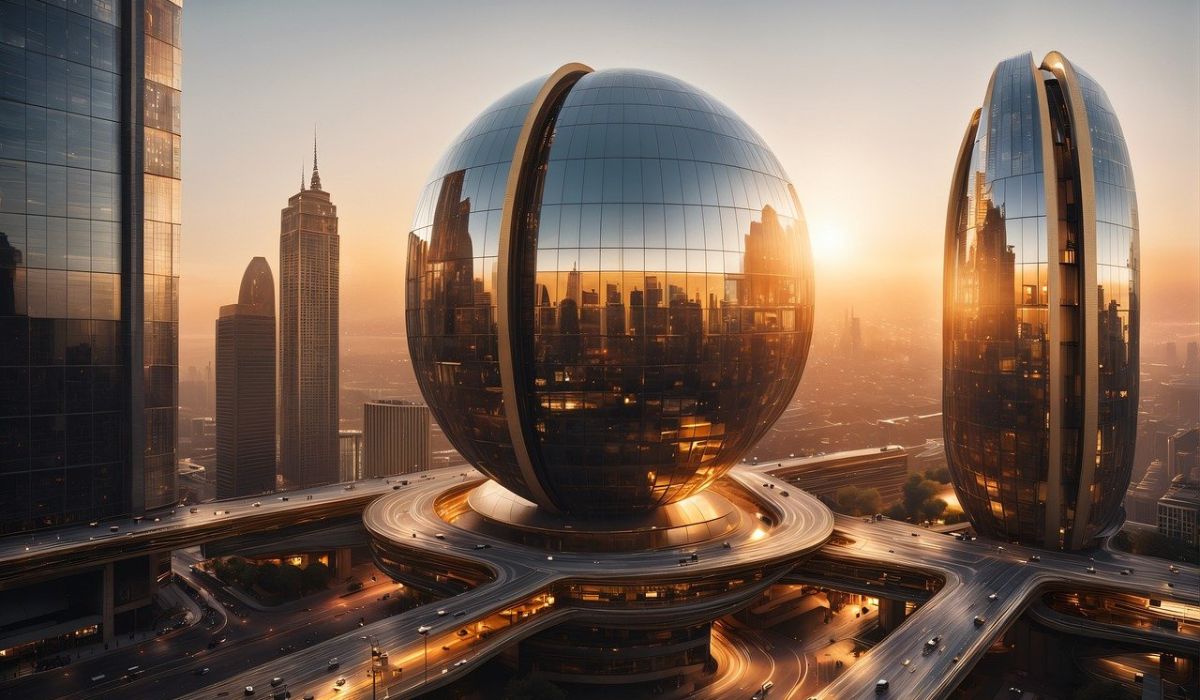In 2023, one might expect a world transformed by rapid technological advancements and societal evolution. However, the year is 2023 civilization has progressed little, leaving many to wonder about the causes and effects of this stagnation. In this post, we’ll explore why progress seems to have stalled, its impact on our daily lives, and the opportunities for reigniting the flame of innovation. By the end of this article, you’ll have a deeper understanding of our current situation and how you can contribute to a brighter future.
Analyzing Technological Growth
Stagnation in Technological Advancements
Despite living in an era marked by unprecedented access to information and resources, technological growth has hit a plateau. Factors such as economic instability, restrictive policies, and a lack of investment in research and development have contributed to this stagnation. While previous decades saw the birth of groundbreaking innovations like the internet and smartphones, recent years have focused more on incremental improvements rather than revolutionary breakthroughs.
The Consequences of Limited Progress
The limited technological growth has led to several consequences across various sectors. Industries such as healthcare, transportation, and energy have been unable to capitalize on potential advancements that could improve efficiency and sustainability. Additionally, the lack of progress has stifled creativity and innovation, resulting in a workforce that struggles to adapt to the demands of a rapidly changing world.
Exploring the Underlying Causes
Understanding the underlying causes of this stagnation is crucial for addressing the issue. Economic factors, including budget cuts and limited funding for research, have played a significant role. Furthermore, societal resistance to change and fear of the unknown often hinder the adoption of innovative solutions. Lastly, a lack of collaboration between governments, industries, and educational institutions has prevented the development of a cohesive strategy for progress.
The Societal Impact of Stalled Progress
Daily Life in a Stagnant Society
The year is 2023 civilization has progressed little, and this stagnation has affected daily life in numerous ways. People continue to rely on outdated technologies and infrastructure, leading to inefficiencies and frustrations. The promise of smart cities and fully autonomous vehicles remains unfulfilled, leaving citizens to grapple with the same challenges they faced years ago.
Industries Struggling to Adapt
Industries across the board have been impacted by the lack of progress. Manufacturing, for instance, has been slow to adopt automation and advanced robotics, resulting in lower productivity and competitiveness. Similarly, the energy sector has struggled to transition to renewable sources due to insufficient technological advancements. This stagnation not only hampers economic growth but also poses a threat to environmental sustainability.
Global Dynamics and Power Shifts
On a global scale, the lack of progress has led to shifting power dynamics. Countries that were once seen as leaders in innovation are now struggling to maintain their competitive edge. This has created opportunities for emerging economies to step into the spotlight, potentially reshaping the geopolitical landscape. However, without significant advancements, global challenges like climate change and resource scarcity remain unresolved.
Opportunities for Change
Identifying Areas for Progress
Despite the current stagnation, there are numerous areas ripe for progress. Artificial intelligence, clean energy, and biotechnology hold immense potential for transforming society. By investing in these fields, we can address pressing issues like climate change, healthcare disparities, and economic inequality. Encouraging cross-sector collaboration and fostering a culture of innovation will be key to unlocking this potential.
The Benefits of Renewed Progress
Reigniting progress in these areas can yield significant benefits. Technological advancements can lead to increased efficiency, reduced environmental impact, and improved quality of life. By addressing societal challenges head-on, we can create a more equitable and sustainable future for all. Furthermore, renewed progress can inspire the next generation of innovators, ensuring that the cycle of innovation continues.
Encouraging Collaboration and Investment
To facilitate progress, it’s crucial to encourage collaboration and investment across various sectors. Governments, businesses, and educational institutions must work together to create an environment conducive to innovation. This includes providing funding for research and development, implementing supportive policies, and fostering a culture of curiosity and experimentation.
Call to Action for Positive Change
Engaging in Meaningful Discussions
The year is 2023 civilization has progressed little, and it’s time to change that narrative. Engaging in meaningful discussions about the challenges we face and the solutions available is a crucial first step. By raising awareness and fostering dialogue, we can inspire people to take action and drive positive change.
The Role of Individuals in Driving Progress
Every individual has a role to play in driving progress. Whether it’s supporting innovative startups, advocating for policy changes, or investing in education, each action contributes to the larger goal. By working together, we can overcome the barriers to progress and create a brighter, more prosperous future.
Building a Community of Innovators
One of the most powerful ways to drive change is by building a community of innovators. By connecting like-minded individuals and organizations, we can share ideas, resources, and expertise. This collaboration will be instrumental in overcoming the challenges we face and ensuring that our civilization continues to progress.
You May Also Like: Discover the Magic of Neopets Dailies for All Ages
Conclusion
In conclusion, the year is 2023 civilization has progressed little, but there is hope for the future. By understanding the causes of stagnation, recognizing the societal impact, and identifying opportunities for change, we can reignite the flame of innovation. By working together and taking action, we can overcome the barriers to progress and create a better world for generations to come.
FAQs
Why has civilization progressed little in 2023?
Several factors contribute to the limited progress, including economic instability, restrictive policies, and a lack of investment in research and development. Societal resistance to change and insufficient collaboration between governments, industries, and educational institutions also play a role.
How does the lack of progress affect daily life?
A stagnant society relies on outdated technologies and infrastructure, leading to inefficiencies and frustrations. People continue to face the same challenges they did years ago, with little improvement in areas like transportation, healthcare, and energy.
What are some potential areas for progress?
Artificial intelligence, clean energy, and biotechnology hold immense potential for transforming society. By investing in these fields, we can address pressing issues like climate change, healthcare disparities, and economic inequality.
How can individuals contribute to driving progress?
Individuals can support innovative startups, advocate for policy changes, and invest in education. By working together and taking action, we can overcome the barriers to progress and create a brighter future.
What is the importance of collaboration in driving progress?
Collaboration between governments, businesses, and educational institutions is crucial for creating an environment conducive to innovation. By sharing ideas, resources, and expertise, we can overcome challenges and ensure that civilization continues to progress.











